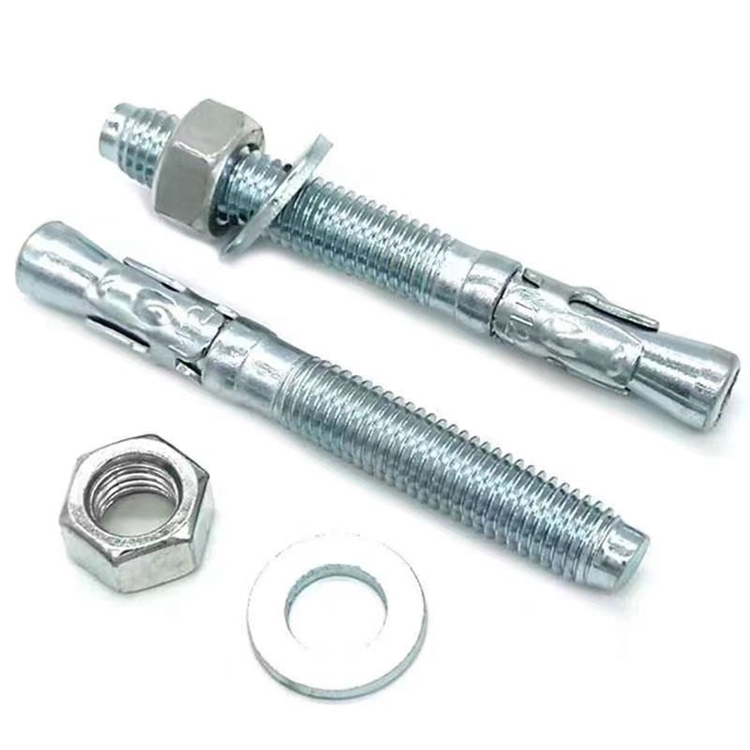Top Manufacturers of Stud Bolts Complying with ASTM A193 Standards for Industrial Applications
Jul . 28, 2024 22:17 Back to list
Top Manufacturers of Stud Bolts Complying with ASTM A193 Standards for Industrial Applications
Understanding Stud Bolts and ASTM A193 Key Considerations for Companies
Stud bolts are essential components in various industrial applications, often used to secure parts together in high-pressure and high-temperature environments. Their reliability and structural integrity are critical in industries such as oil and gas, power generation, and chemical processing. To ensure that these fasteners meet the necessary safety and performance standards, many companies turn to the ASTM A193 specification.
What is ASTM A193?
ASTM A193 is a standard specification developed by ASTM International that covers alloy and stainless-steel bolting materials for high-temperature or high-pressure service. This specification outlines the requirements for various grades of stud bolts, ensuring that they can withstand extreme environmental conditions that might compromise their structural integrity. The grades are defined by chemical composition, mechanical properties, and heat treatment processes, making it essential for manufacturers to adhere to these guidelines to produce reliable products.
Importance of Stud Bolts in Industry
Stud bolts serve a vital role in mechanical assemblies, particularly where strong and stable joints are required. Their design allows for easy installation in confined spaces, where traditional nuts and bolts may not fit. The properties defined by ASTM A193 ensure that these fasteners can perform in demanding environments, such as
- Oil and Gas In oil refineries and gas processing plants, equipment is often subjected to high pressures and corrosive environments. Stud bolts manufactured according to ASTM A193 can resist these conditions, which helps prevent leaks and ensures safety.
- Power Generation In power plants, stud bolts are commonly used in turbines and heat exchangers. The reliability of these fasteners is crucial to prevent catastrophic failures that could lead to downtime and costly repairs.
- Chemical Processing The chemical industry frequently relies on stud bolts to maintain the integrity of reactors and storage tanks. By using materials compliant with ASTM A193, companies can reduce the risk of failure due to chemical exposure.
stud bolt astm a193 companies

Choosing the Right Manufacturer
Selecting a manufacturer that specializes in ASTM A193 stud bolts is critical for companies in these industries. When evaluating potential suppliers, consider the following factors
1. Certification and Compliance Ensure that the manufacturer has appropriate certifications that confirm their adherence to ASTM A193 standards. This may include ISO certification and other relevant quality assurance processes.
2. Quality Control Processes Inquire about the manufacturer’s quality control measures. A rigorous quality assurance program is essential to ensure that each batch of stud bolts meets the required specifications.
3. Material Sourcing Understanding where a manufacturer sources their materials can provide insights into the quality of the final product. Companies should look for manufacturers that use high-grade raw materials from reputable suppliers.
4. Technical Support and Expertise A knowledgeable supplier can provide valuable assistance in selecting the appropriate grade of stud bolts for specific applications. They should be able to offer technical guidance regarding compatibility, installation, and maintenance.
5. Reputation and Track Record Research the manufacturer’s reputation within the industry. Customer reviews, case studies, and long-term partnerships can offer transparency into the company’s reliability and performance history.
Conclusion
In conclusion, stud bolts manufactured according to ASTM A193 play a critical role in various high-stress applications across industries. The careful selection of a manufacturer who complies with these standards is essential for ensuring the safety and efficiency of industrial operations. As companies look to enhance their procurement strategies, understanding the implications of ASTM A193 and the significance of quality in stud bolts will be paramount in driving success and minimizing risk in their projects.
Latest news
-
Top Wire Bolts Suppliers - Quality & Durable Fasteners
NewsAug.15,2025
-
Trusted Wire Bolts Company | Quality Fasteners Supplier
NewsAug.14,2025
-
Reliable Wire Bolts Suppliers & Manufacturers for Global Needs
NewsAug.13,2025
-
High-Quality Bolts for Lawn Mower Handle Supplier
NewsAug.12,2025
-
Leading Phosphated Drywall Screws Supplier | Bulk & Custom Orders
NewsAug.11,2025
-
Top Wire Bolts Company: Manufacturers, Exporters & Suppliers
NewsAug.10,2025
